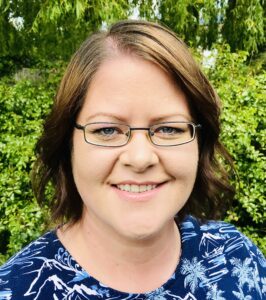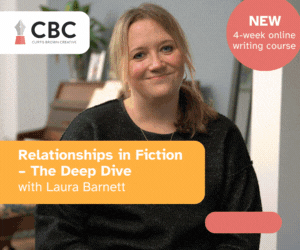Ask An Industry Expert: Donna Hillyer
22 May 2020
Today I’m delighted to welcome Donna Hillyer, publishing consultant and freelance editor.
 Hello, Donna and it’s so nice to speak with you again. It was great to have you participate in the RNA Conference last July and I was one of many delegates in your Slush Pile Slam! session. it was both informative and challenging to note how you and two other publishing professionals romped through a succession of first pages of manuscripts submitted (anonymously) by delegates to come to an immediate judgment as to whether it was a YES or a NO when it landed on the publisher’s desk. Can you identify the main things your clients need help with to turn a suspected NO into a YES.
Hello, Donna and it’s so nice to speak with you again. It was great to have you participate in the RNA Conference last July and I was one of many delegates in your Slush Pile Slam! session. it was both informative and challenging to note how you and two other publishing professionals romped through a succession of first pages of manuscripts submitted (anonymously) by delegates to come to an immediate judgment as to whether it was a YES or a NO when it landed on the publisher’s desk. Can you identify the main things your clients need help with to turn a suspected NO into a YES.
It was a real pleasure to be a part of such an interesting and vibrant panel. I think it was helpful for authors to see how quickly professionals who have lists to fill make a decision to read on or not, then hearing the reasoning behind that in each case.
My role is interesting as, having spent years commissioning, I’m now five years into a varied role that sees me both working with publishers on books scheduled to be published – so seeing what’s current – as well as working with authors who are hoping to get agent representation/a publishing deal, or helping them to improve their books prior to self-publishing (with some choosing that avenue from the get-go).
I find the main things clients need help with are: positioning/where the book fits the market (is there one genre dominant, or is it doing cross-genre well); plot; characterisation (and the plausibility of how people act/authenticity of emotions and actions); a strong narrative (are we compelled to read on?); originality.
Your website speaks of being competitive and standing out from the crowd. How does an author decide between replicating success with a particular genre that’s sold before, or going for something new and different? How do you advise them?
There will always be the books that come out of left field and start the next trend, so certainly don’t be afraid to try new things if you have a strong idea you believe in. It’s important that an author wants to write what they’re writing, and that will lead them (and that authenticity can usually be felt in the writing). If you want to try something new and different, do, but a tip is to not lose sight of the end reader so you don’t run the risk of something so original it doesn’t have an obvious place in the market.
If you know that you want to write within a particular genre, then do go with that, thinking about what you can do differently to other authors within those parameters.
Can you identify any current trends in what you think agents and publishers will be looking for in 2020/21?
It’s certainly an interesting and challenging time across the board right now. In commercial fiction, my own feeling is that readers will be looking for escapist fiction that doesn’t feature/focus on the current pandemic. Saying that, I wonder if we’ll see more books that nod to the current situation indirectly, through the exploration of historical events, e.g. Emma Donoghue’s upcoming The Pull of the Stars, set in Ireland during the 1918 Spanish flu outbreak.
I wonder, too, if it might be the opposite in YA, with so many young people trying to make sense of the current world and their sense of invincibility being challenged, and if we’ll see a spate of fiction exploring themes like loss of freedom, global threats, and the overturning of capitalism.
I think nature will feature in books a lot more too, and our connection to/relationship with it.
I feel we’ll see more non-fiction books focusing on well-being/mental health, managing anxiety etc, as that becomes an increasing focus for people in this new restricted world.
What is your typical working day like?
There is a pre-CV-19 answer to that question, and then my current reality, with 5-year-old twins being home-schooled – I’m sure a lot of readers in a similar situation will empathise with the fact those two worlds are very different!
At the moment, as I have that flexibility as a freelancer, I work in the evenings (thankfully I’m a night owl), and also the weekend when my husband takes over the kids. My week varies depending on the type of project booked in. I also spend time giving quotes to potential clients and catching up on industry news, so I’m always on top of what’s selling/current trends and news etc.
Tell us some of your proudest moments in terms or your own or your authors’ achievements.
I’ve worked with so many authors, both as a commissioning editor and now freelance, who’ve done incredibly well, and it’s too difficult to pluck one or two for the spotlight here.
One personal moment for me that jumps out is when I was shortlisted in 2012, with three others, for the prestigious Kim Scott Walwyn Prize (which recognises promise and achievement amongst women who’ve worked in the publishing industry for up to seven years). That year I’d launched Piatkus Entice at Little, Brown, one of the very first digital lists in the UK – amazing to think how far, eight years on, digital publishing has come, and so great that ebook VAT has finally been scrapped. I didn’t have the most obvious route into publishing – I grew up on dairy farm in rural Ireland, the first in my line to go to university – so to become an editor and then have my hard work recognised and acknowledged in this way made me feel very proud, and also thankful to have parents who encouraged me to have self-belief, and reach and strive for what I wanted. There is a message in there for authors too – it can be a slog at times, but stick with it and keep persevering.
Can you tell us the last published book you read which you really enjoyed and why?
I’ve just started reading Hamnet by Maggie O’Farrell, which of course I’m loving. And I read it a while back but I have to mention the brilliant Normal People by Sally Rooney, as I’ve just started the TV series, and the complicated, intense world of Connell and Marianne is consuming me once more. Rooney layers her characters brilliantly, and in the story we’re driven by them and their emotions/relationship, and Rooney’s delicate observations, rather than a rip-roaring plot; the beauty is in the nuance. I found myself reading it so carefully, with scenes being as important for what they don’t show as what they do.
Next on the list, after Hamnet, is Julie Cohen’s Together, which I purchased recently having seen a great recommendation on Twitter – proof social media recommendations work!
I notice you have a degree in English and Philosophy, which makes me think you might be quite good at writing yourself. Have you ever considered getting into print/e-book? If so, what kind of book would you write?
Great question – as you predicted, I do love to write. Maybe one day I’ll think of taking that further, but currently any story creation of mine is aimed very much at the 5-year-old area of the market, with two tough critics to please!
Thank you so much for taking part in the RNA blog at this challenging time. Perhaps I could finish by asking how you think the publishing industry is being or will be affected by the restrictions we have been living under in terms of normal routines of social contact and shopping?
I can see publishers exploring different direct-to-consumer initiatives and models (especially smaller independents), as well as booksellers, as bookstore footfall is going to be challenged for some time. Challenges also present opportunities, though, so it’ll be interesting to see the innovation that emerges.
For more about Donna and her work, see:
https://twitter.com/donnahillyer
See here for a selection from her freelancing portfolio: https://reedsy.com/
Email: donnahillyerpublishing@gmail.com
*
Donna was talking with Susan Leona Fisher: Website: http://www.SLFisherAuthor.co.uk




